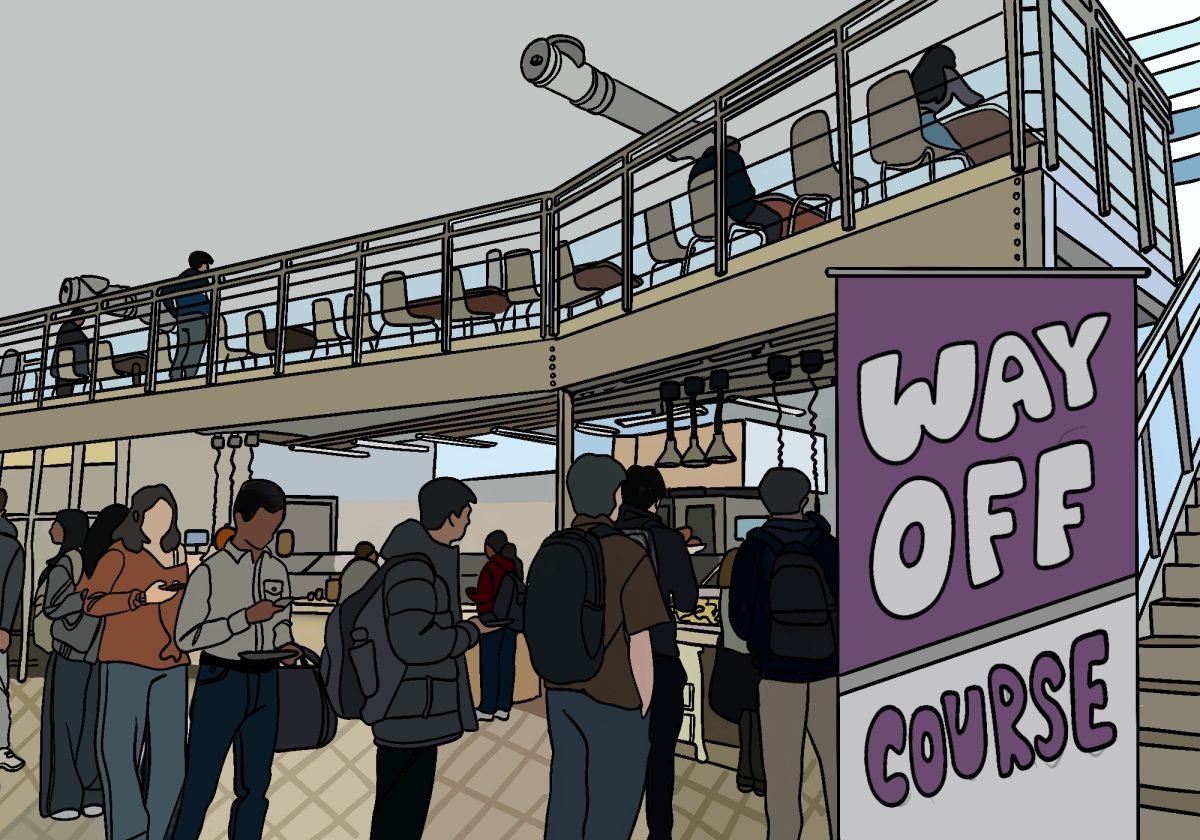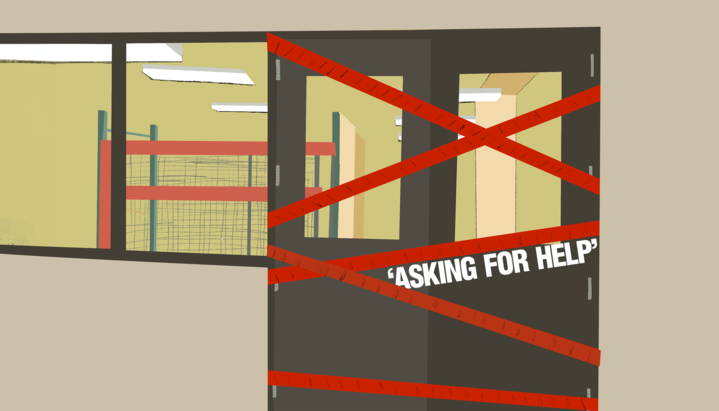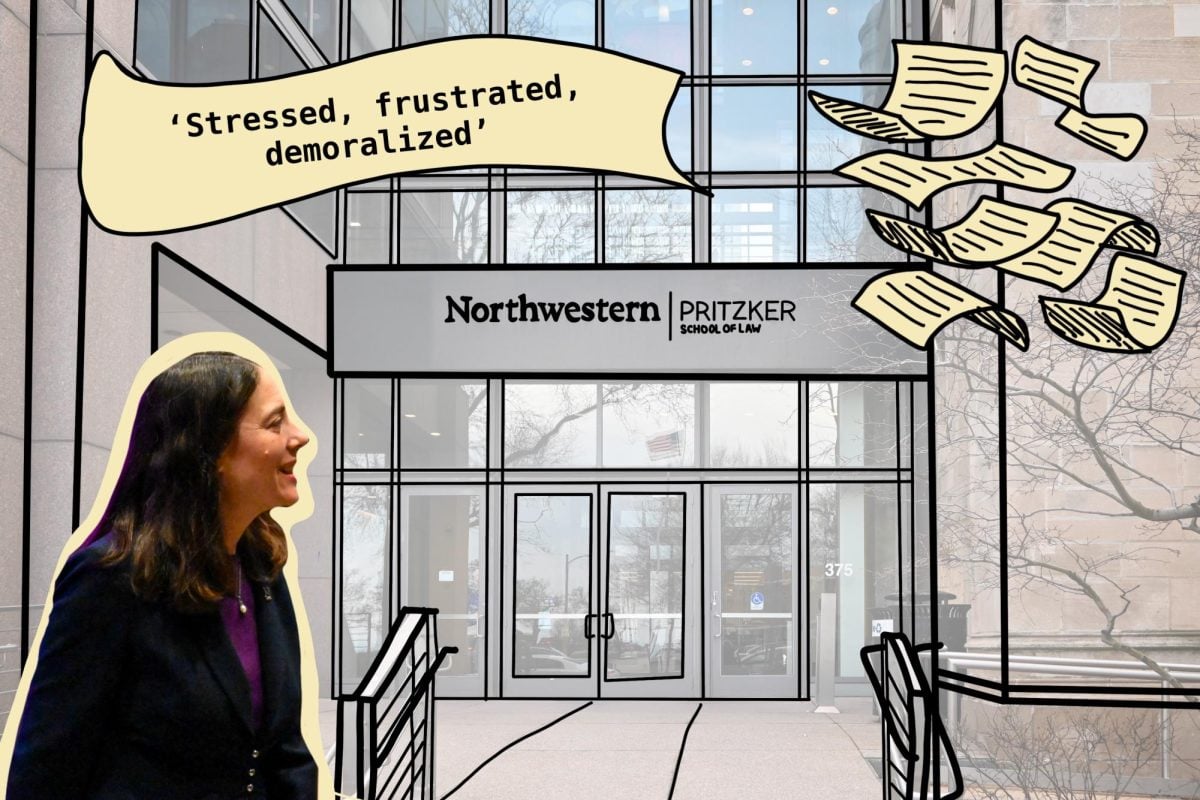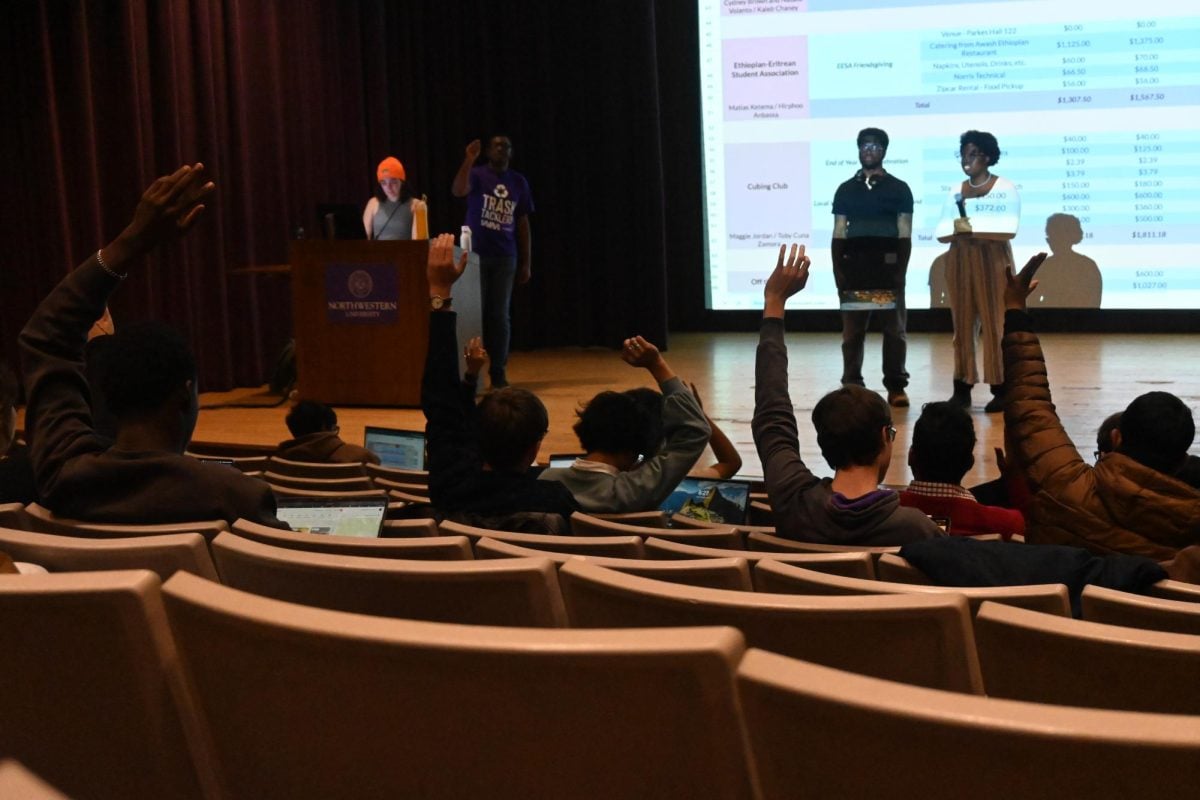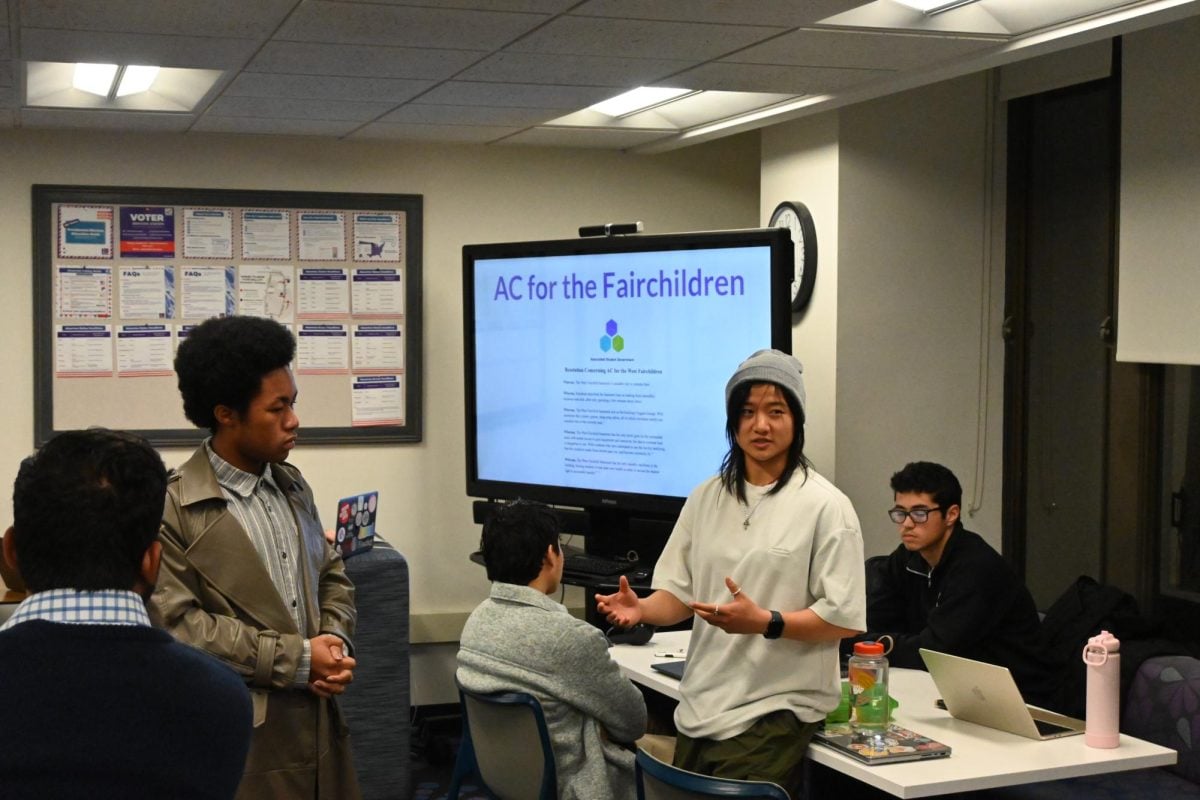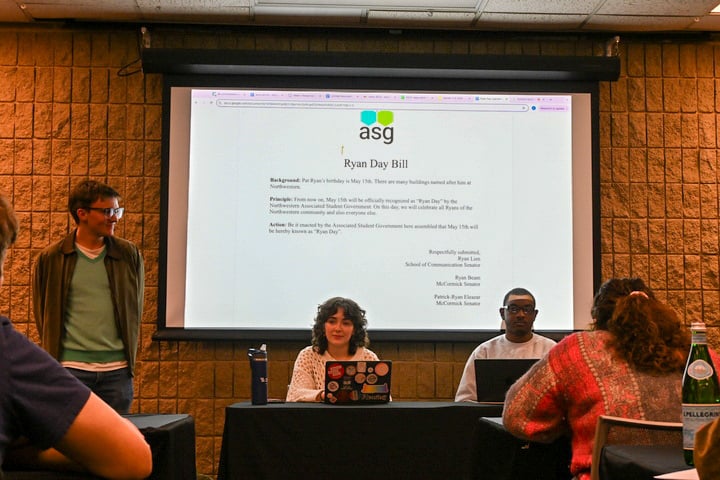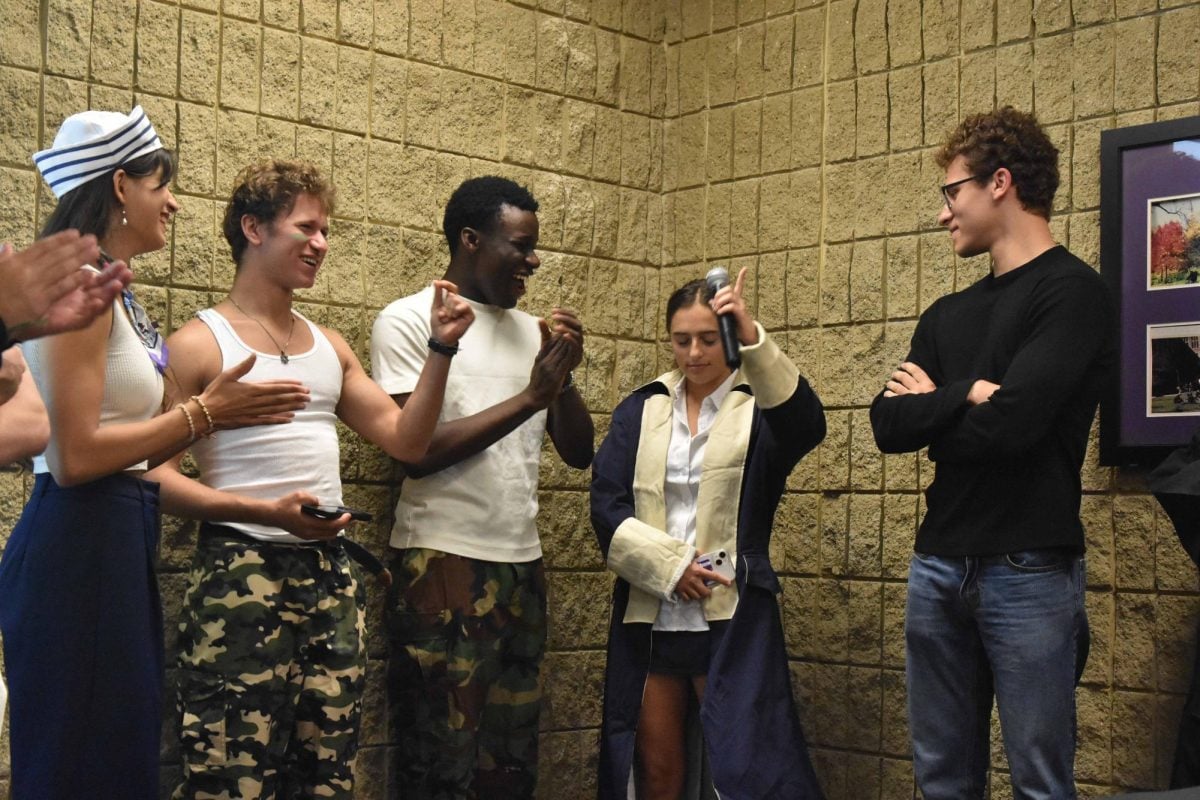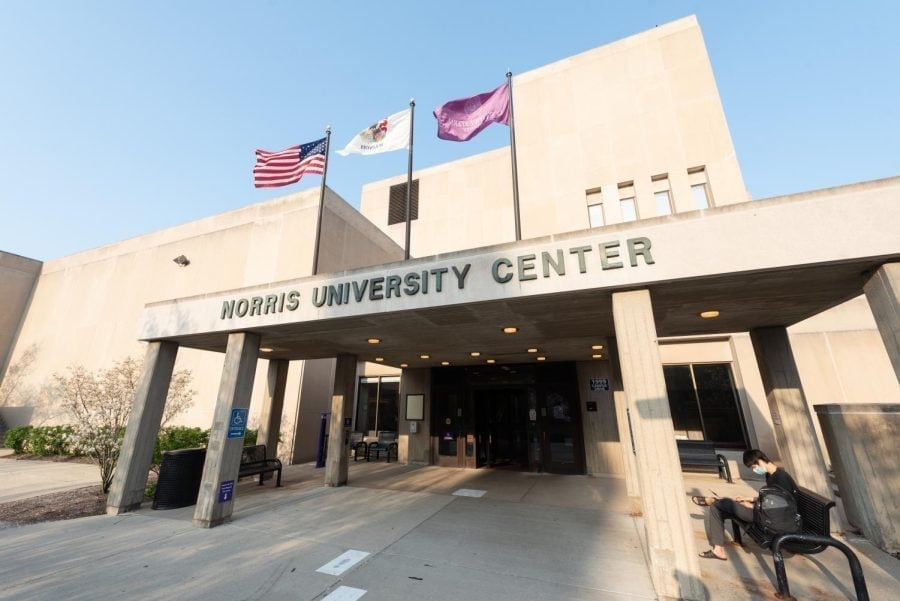After months of discussing how to make the Associated Student Government more representative and effective, some ASG Senate leaders have come up with an unexpected and dramatic solution: slicing the size of the organization by more than half.
But that’s only one of several options ASG leaders are currently discussing, according to ASG President Claire Lew and other Senate leaders. They are also considering instituting campus-wide elections for senators, eliminating senators’ affiliations, such as dorms and student groups, and shifting representation among Senate caucuses.
Currently, Senate is divided into four caucuses: student groups, fraternities and sororities, on-campus residents and off-campus residents.
ASG will hold a community forum to hear students’ opinions about how it should improve its structure Thursday at 6 p.m. in Norris University Center’s Lake Room.
Lew created the Senate Representation Evaluation Ad Hoc Committee after ASG members began questioning the efficiency of the current structure in the fall, said Matt Bellassai, ASG’s spokesman. The committee has been meeting for six weeks.
“We started to ask, ‘Is that the best way to represent students?'” said Bellassai, a Medill junior. “With 49 people in the room at our Wednesday night meetings, is that the right number for productivity and hearing everybody’s voices every week?”
Representation ‘gap’
In an interview, Lew, who has served in the Senate since her freshman year and has nearly completed her yearlong term as ASG president, criticized the current structure of the organization for being inaccessible to students. Currently, many students do not consider their ASG senators to be their connection to changing NU, she said.
“You ask a student, ‘How do you feel your voice is heard?’ and people probably wouldn’t say Senate,” she said. “They probably wouldn’t even know what Senate is. There’s a gap there.”
According to Lew, this is due to four problems in the current Senate structure: lack of legitimacy in Senate positions, poor accessibility to constituents, lack of quality in content discussed between senators and overlap in representation of students.
Weinberg sophomore Michelle Kim said she doesn’t think ASG members are accessible enough on campus. Aside from surveys e-mailed to students, they don’t get much say through ASG, she said. Kim suggested an open online forum for students to write their opinions or requests to ASG.
“More access points to senators are needed,” she said. “They’re not very visible on campus.”
Many proposals on the table
Wilson Funkhouser, a member of the evaluation committee and the Senate’s parliamentarian, said the committee has considered several different systems of representation, including dividing students by identification numbers or alphabetically, or having a set number of senators for each class.
However, Funkhouser expressed concern with some of the ideas the committee has produced so far.
“The problem we’ve encountered with so many of these different methods is that it’s relatively arbitrary,” said the Weinberg junior. “(Under those methods), there’s no connection with those constituents, so why should they have a vested interest and therefore feel that their senators are legitimate?”
Funkhouser added ASG has been experimenting with other methods of improving communication between senators and constituents, including establishing office hours for Residence Hall and Residential College senators.
The parliamentarian did not mention the idea of reducing the size of the Senate.
NU College Democrats President Jonathan Forman said ASG could be strengthened by reducing its size.
“A smaller group could have a more intimate relationship with NU’s administration,” the Weinberg junior said.
Uneven representation and easy election
David Harris, a SESP freshman and ASG senator for Elder Hall, said the current system does not accurately represent each student.
He pointed to the fact that many students, including himself, are represented by multiple senators.
“As a freshman in Elder, a member of College Democrats and a pledge at Sigma Chi, I’m represented three times, whereas an off-campus student who’s not part of any student organizations can only be represented once,” he said. “That’s clearly an injustice.”
Uneven representation is one of the biggest problems in the current system, Bellassai said, as well as lack of legitimacy and lack of access to constituents.
Funkhouser said he did not think overlapping representations of students is a problem because students who are more involved on campus have may have more opinions about the University. However, he does find lack of legitimacy in senators a problem.
“Senate positions are seemingly handed off to whoever wants them,” he said. “ASG is our voice to the administration, the people in charge. We’re electing these people to be our voices. The Senate needs to be responsible to ensure that changes are made.”
Many students may not feel their senators are valid simply because they were voted into Senate easily, he said.
“Running in a dorm election isn’t necessarily the most difficult thing,” he said. “If we want our senators to be legitimate, we have to make it easier than just a popularity contest.”
An opportunity for reform
ASG members said they expect the forum will provide much of the insight needed to come up with an effective reform.
“We want people to be open about what the possibilities could be and try not to let past assumptions or preconceptions about what has happened cloud what the reality of NU needs are and the realities of the current system,” Lew said.
After the forum, legislation will be drafted for the following Senate meeting on Wednesday. ASG will vote on it at the next meeting, March 9, Lew said.
The process represents a unique opportunity for students to reform their connection to the University – one they should take, Lew said. If ASG implements the changes well, it could become much more efficient and relevant to the student body, she said.
“Senate is supposed to be the pulse of the student body,” she said. “What Senate is talking about is what is supposed to be on the forefront of students’ minds.”
